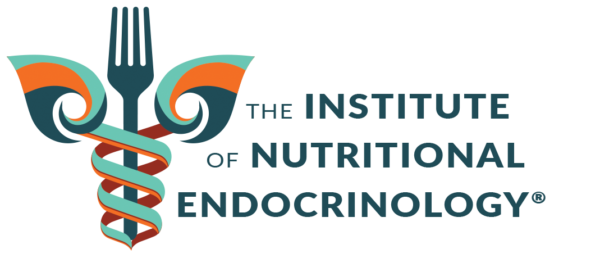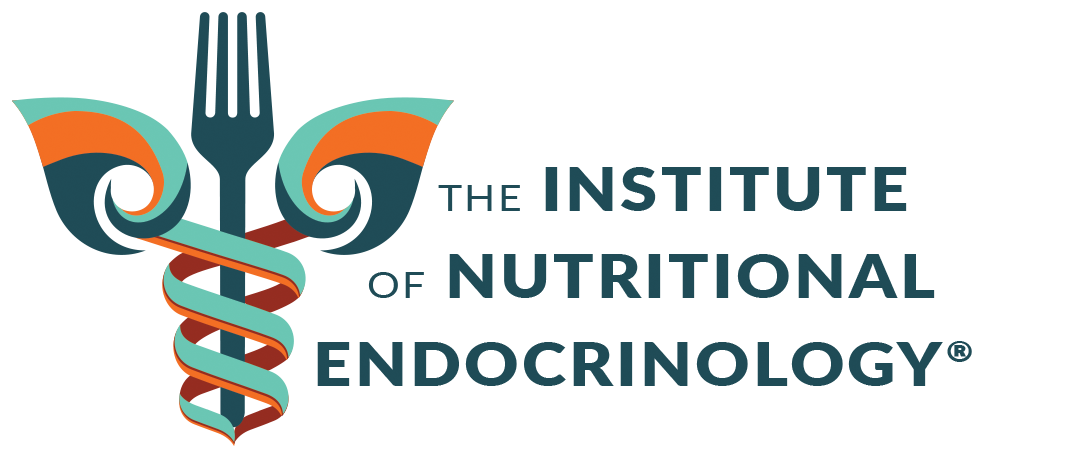Clinical Pearls – 2015
Limiting Beliefs – March 22nd, 2015
Nutritional Endocrinology Practitioner Training (NEPT)
Clinical Pearl
March 22nd, 2015
Limiting Beliefs
Limiting beliefs thwart your clients in their progress just as much, and sometimes more, than eating processed food and allergens do.
This has been reinforced for me lately by some very sensitive conversations I’ve had with my coaching clients.
As most of you know, I run a year-long coaching program called Energy Recharge Coaching. Some NEPT members are already coaching small groups within this program, others have recently agreed to do that for the coming year for internship hours. All of you will have the opportunity to do so when you are ready.
Yesterday we had one of our “Virtual Retreat” days where the participants come together for an all-day session with me. We call it a retreat, because, like we do at our yearly retreat, each participant got a chance for spotlight coaching.
And like at our retreats, each person is at a different place and the types of obstacles that we discuss are very different.
Yesterday, limiting beliefs came up a few times and by being fully present with each person, I was able to go deep and break through some resistance. At the same time, others listening told me that they got a tremendous amount of benefit from how others processed through.
I share this today to leave you with 2 pearls:
Pearl #1 – The importance of approaching each session with a client with openness to explore what is most needed at the time, even if you had an agenda for the call. Flexibility and tuning in to their needs is most important to help them break through obstacles.
Pearl #2 – The importance of addressing limiting beliefs right from the start. You can identify these in their patterns of speech and how they talk about their health challenges. Do they identify with the disease? Do they say things like “I can’t do that because of my fibromyalgia, or my disability, or my ‘insert disease name’?”
Or do they say things that suggest they think they are not good enough, or that they will never get truly well, or that they have always been fat and can’t imagine it any other way?
Tune in to what they say, and the hidden belief below the surface. Ask for permission to gently point out to them when they are limiting themselves and to explore more empowering language.
This is as important as teaching them what and when to eat and what supplements and herbs to take to correct imbalances.
Here are 2 resources to help with this:
A recent blog talk radio show:
A resource on limiting beliefs that’s part of the ERC program:
Be sure to log in to the Vibrant Living Members site to access this:
http://www.VibrantLivingMembers.com
User-ID: ~Contact.Email~
Password: ~Contact.Password~
http://www.vibrantlivingmembers.com/foundations/part2/limiting-beliefs/
Adrenal Fatigue and Stress Transformation – March 15th, 2015
Nutritional Endocrinology Practitioner Training (NEPT)
Clinical Pearl
March 15th, 2015
Adrenal Fatigue and Stress Transformation
When you suspect someone is dealing with adrenal fatigue, it’s important to determine what stage they are in before recommending herbs and supplements and it’s important to monitor, tweak and retest regularly.
There is no one size fits all, and if you put someone on a protocol, you need to check in regularly and ask about their sleep, energy and mental clarity.
Become familiar with my Adrenal Recharge Blueprint, and be sure not to skip parts.
Don’t underestimate the power of stress transformation.
If you haven’t already done so, go through my 30 day stress transformation system, and teach it to your clients. (login before clicking). This will soon be available as a product your clients can purchase.
White bean extract and insulin sensitivity – February 22nd, 2015
Nutritional Endocrinology Practitioner Training (NEPT)
Clinical Pearl
February 22nd, 2015
White bean extract and insulin sensitivity
I recently learned about White Bean Extract for improving insulin sensitivity in several clinical trials. There’s a product called Phase 2 which has been studied most. My radio guest this week, James LaValle, introduced me to the product and I decided to research it.
He’s had tremendous success with it in his clients. Apparently it works because white beans (phaseolus vulgaris) produce an alpha-amylase inhibitor, which has the ability to reduce the post-prandial spike in blood glucose levels.
For additional details, read this article: http://www.ncbi.nlm.nih.gov/pmc/articles/PMC3071778/
GI Hormones and weight management – February 15th, 2015
Nutritional Endocrinology Practitioner Training (NEPT)
Clinical Pearl
February 15th, 2015
GI Hormones and weight management
I was watching to a video by Mike Mutzel that someone posted to the INE site. I like Mike because he really delves into the biochemistry when he explains things.
When I interviewed him on my radio show, he spoke about how bariatric surgery (including gastric bypass) works in part because of the hormonal changes that occur in the gut as a result, resulting in decreased appetite and decreased blood sugar.
We’ll cover all of this in detail in the Digestive Module, but for now I wanted to make a few points. Due to the success of bariatric surgery with reducing appetite and thus weight, scientists are exploring ways to get the benefits without the very serious and life long side effects. So naturally they are looking for drugs that effect hormones like CCK, GLP1, and incretins.
However, why not look to food and lifestyle first?
It’s known that things like arabinogalactans, inulin, bifidobacter, and pea protein have similar positive effects on GI hormones, and things like curcumin reduce inflammation and improve insulin sensitivity. According to Mike Mutzel, there have been studies showing that mindful eating and heartmath have the most significant effect of all.
So all the things we do and are learning more and more about each day are the things that will get the best results when it comes to balancing the hormones of the GI tract – and everywhere else.
For further reading / viewing on the topic check out:
Fats and Genetics- February 8st, 2015
Nutritional Endocrinology Practitioner Training (NEPT)
Clinical Pearl
February 8th, 2015
Fats and Genetics
Are you tired of the diet dogma wars? We’ll be doing our “Food Religions” Module soon, and I will go into each diet in depth and help you to customize your clients’ diets based on sound science and clinical experience.
For example, if your client (or you!) have the APO 3,4 or 4,4 variation, saturated animal fats are damaging. People with these variations NEED to be vegetarian, or pretty close to it. If you have the APOA2 C variant, saturated fats WILL make you fat whereas if you have the APOA2 T variant, saturated fat WILL NOT make you fat.
So before prejudging whether a high or low fat diet is best, be sure to consider genetics.
Fat and Insulin Resistance – February 1st, 2015
Nutritional Endocrinology Practitioner Training (NEPT)
Clinical Pearl
February 1st, 2015
Fat and Insulin Resistance
On my recent radio show, I interviewed Dr. Doug Graham, who promotes a diet of raw plant foods, 80% carbohydrate,10% fat and 10% protein. He is adamant that this is the ideal diet for all people, and leaves little room for individual variation.
I am less dogmatic, and while I agree that the foundation of the diet should be fresh whole organic fruits and vegetables, in my experience, it’s necessary to vary the amounts of these foods and the macronutrient content of the diet according to the needs of each individual, based on genetics, current and past health condition, emotional needs and economics.
I found this article in my collection that I thought would shed some light on the fact that fats do not by themselves contribute to insulin resistance. This article delves into the protective effect of nuts, and the ability to lower insulin resistance. If you want to go right to the discussion about insulin resistance, skip to page 5 or so.

